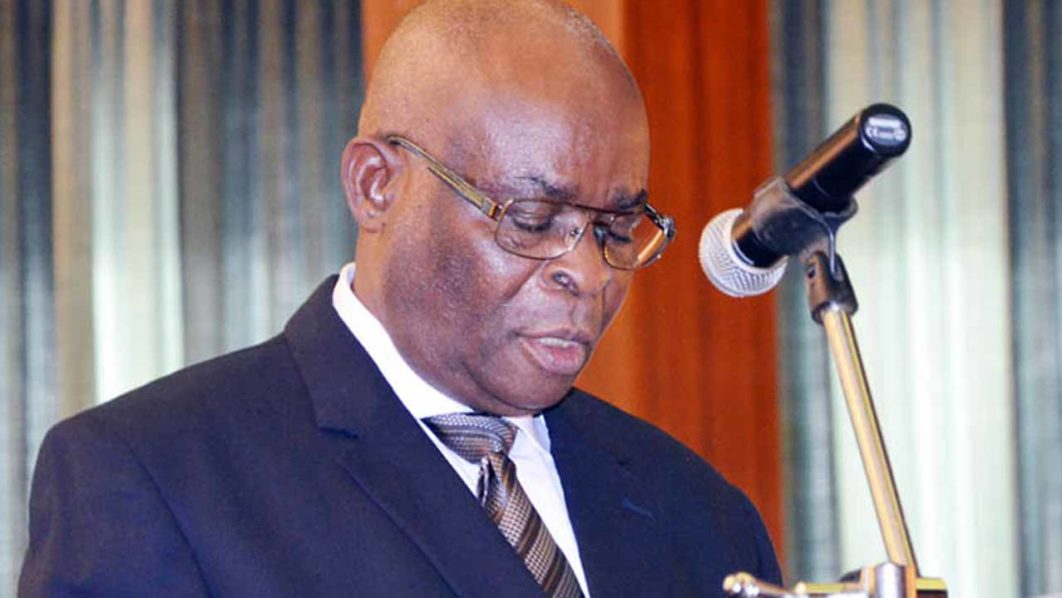 |
| Chief Justice of Nigeria (CJN), Walter Onnoghen |
The Chief Justice of Nigeria (CJN), Walter Onnoghen has absolved the judiciary of blame for alleged delay in the country’s justice system.
Onnoghen made the assertion while speaking to State House Correspondents yesterday after a closed door meeting with President Muhammadu Buhari at the Presidential Villa, Abuja.
He noted that early dispensation of justice was a collective responsibility, adding that all hands should be on deck to move the country’s judicial system forward.
His words: “When cases are not tried expeditiously and the judge is there, ready to listen to the case and for one reason or the other, you take a date to adjourn the case, and the court grants the adjournment, which is normal during proceedings, you cannot turn round and blame the judge.
These are the basic things that everybody should know.
“We must all work together, cooperate for the system to move forward. But if you keep thinking that the judiciary is the culprit in the delay process, you are not telling the whole story. It is not the judiciary that would go and arrest someone before looking for evidence.
“It is not the judiciary that would go into investigations. No, we do not operate the Inquisitional mode of justice like the French. Ours is that an independent body must investigate and prosecute while judges decide.”
Onnoghen, who expressed satisfaction at the performance of judges in the country, disclosed that the need to know the source of delay in the justice system necessitated the setting up of the Commission for the Prevention of Corruption (COMPRECO) comprising defence counsels, prosecutors and the National Judicial Council (NJC).
On the constitution of special courts to try corruption cases, he explained that the decision lied within the purview of the executive arm of government in conjunction with the legislature.
“Under the constitution, it is the executive and the legislature that have the prerogative to establish courts. It is not the duty of the judiciary, nor that of the CJN.
If the authorities decide to establish a special court or any court for that matter, the judiciary will provide the required manpower and run them,” he stated.
In this article:
Onnoghen made the assertion while speaking to State House Correspondents yesterday after a closed door meeting with President Muhammadu Buhari at the Presidential Villa, Abuja.
He noted that early dispensation of justice was a collective responsibility, adding that all hands should be on deck to move the country’s judicial system forward.
His words: “When cases are not tried expeditiously and the judge is there, ready to listen to the case and for one reason or the other, you take a date to adjourn the case, and the court grants the adjournment, which is normal during proceedings, you cannot turn round and blame the judge.
These are the basic things that everybody should know.
“We must all work together, cooperate for the system to move forward. But if you keep thinking that the judiciary is the culprit in the delay process, you are not telling the whole story. It is not the judiciary that would go and arrest someone before looking for evidence.
“It is not the judiciary that would go into investigations. No, we do not operate the Inquisitional mode of justice like the French. Ours is that an independent body must investigate and prosecute while judges decide.”
Onnoghen, who expressed satisfaction at the performance of judges in the country, disclosed that the need to know the source of delay in the justice system necessitated the setting up of the Commission for the Prevention of Corruption (COMPRECO) comprising defence counsels, prosecutors and the National Judicial Council (NJC).
On the constitution of special courts to try corruption cases, he explained that the decision lied within the purview of the executive arm of government in conjunction with the legislature.
“Under the constitution, it is the executive and the legislature that have the prerogative to establish courts. It is not the duty of the judiciary, nor that of the CJN.
If the authorities decide to establish a special court or any court for that matter, the judiciary will provide the required manpower and run them,” he stated.
In this article:
